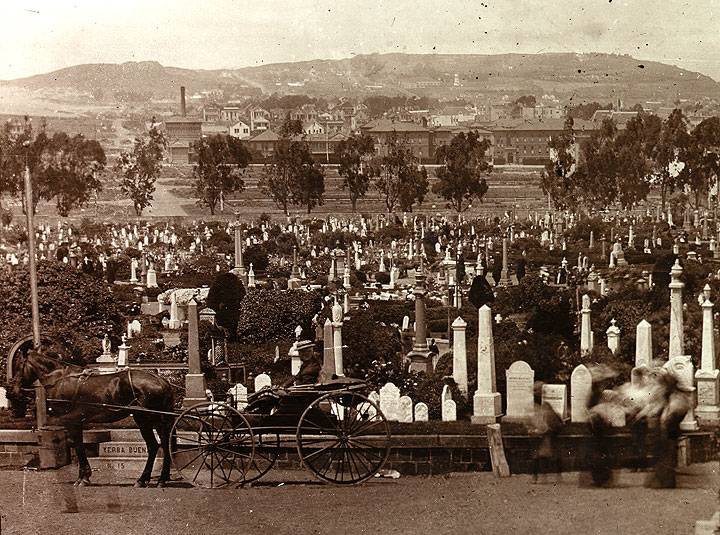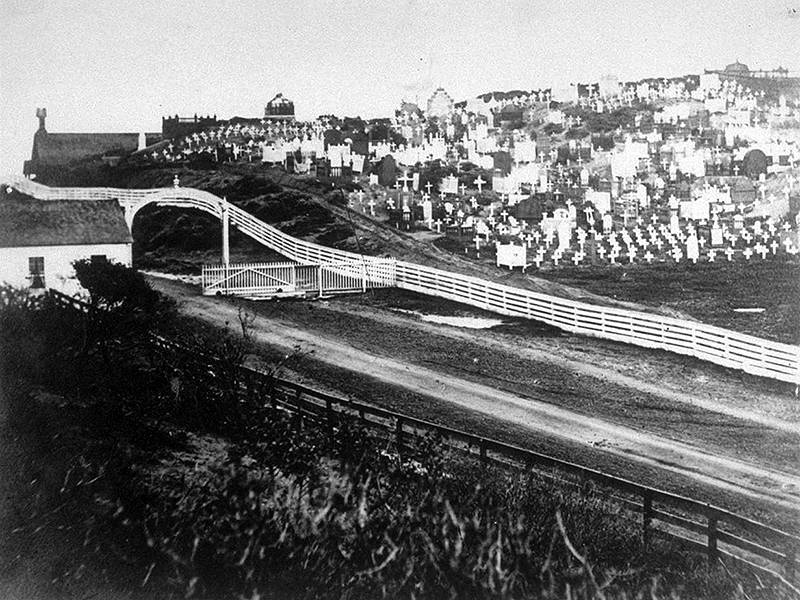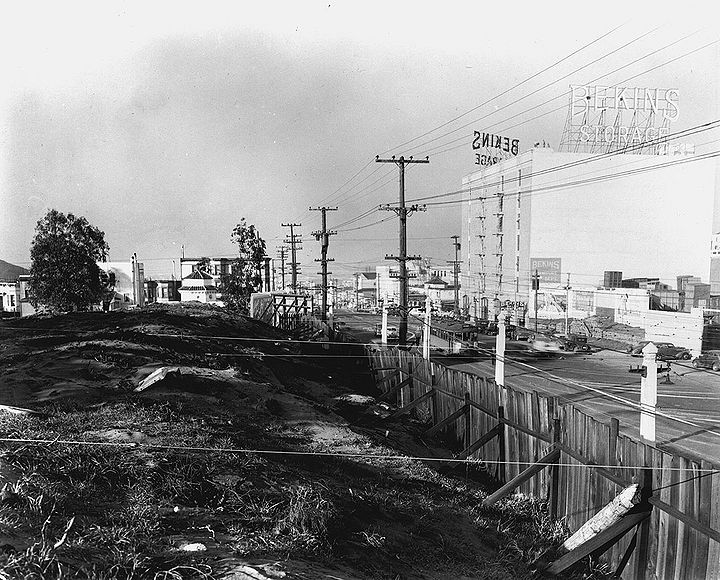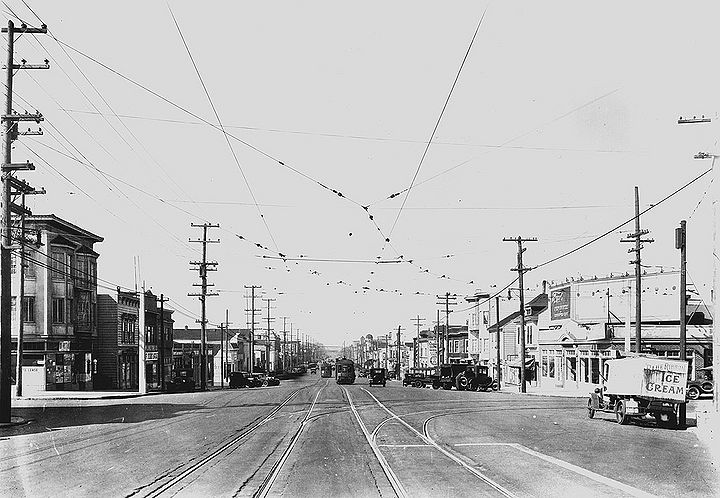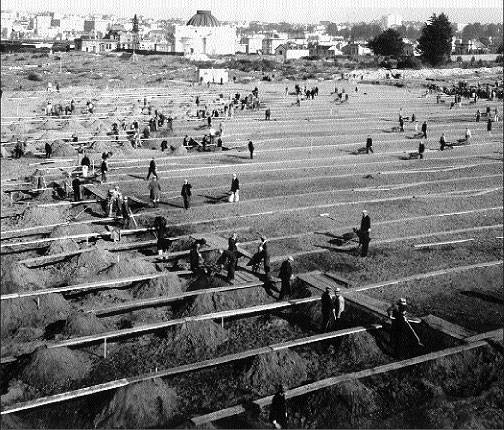Cemeteries at foot of Lone Mountain: Difference between revisions
(changed credit on 1926 SFPL photo which came from C.R. collection) |
(added photo) |
||
| Line 24: | Line 24: | ||
Calvary Cemetery was evacuated next, with housing, the Sears store and Kaiser Hospital being built on the land. | Calvary Cemetery was evacuated next, with housing, the Sears store and Kaiser Hospital being built on the land. | ||
[[Image:Point Lobos toll gate and Calvary Cemetery I0012497A.jpg]] | |||
'''Point Lobos toll gate at Calvary Cemetery, 19th century.''' | |||
''Photo: Online Archive of California, Roy D. Graves collection, I0012497A'' | |||
[[Image:Calvary Cemetery after being cleared for redevelopment june 26 1946 AAD-6132.jpg|720px]] | [[Image:Calvary Cemetery after being cleared for redevelopment june 26 1946 AAD-6132.jpg|720px]] | ||
Revision as of 16:17, 22 June 2020
Historical Essay
by Renee Renaud in The Richmond ReView, February 1989
Odd Fellows Cemetery, 1899
Photo: Private Collection
By the 1850s, San Francisco's growing population looked to the northwest corner for less expensive real estate on which to bury its dead.
Laurel Hill, the first of four cemeteries to be clustered around the base of Lone Mountain, was dedicated in 1854. The three soon to follow were the Calvary Cemetery in 1860 and the Masonic and Odd Fellows cemeteries in 1864.
The cemeteries became a popular place for Sunday family outings as the surveying for Golden Gate Park did not start until August, 1870...
For years the cemeteries acted as buffers to the westward expansion of the City into the Richmond District. In 1894, J.H. Bond, the feisty editor of the Richmond Banner, began to promote the removal of the cemeteries to Colma.
The Richmond was only a small "town" of three thousand at the time, whereas, east of the cemeteries, San Francisco proper had already achieved a population of over three-hundred-thousand...
The battle to remove the cemeteries to Colma followed and continued for years, with groups such as the Cemetery Defense League an Save our Cemeteries fighting the evictions. By 1914, the Board of Supervisors ordered all bodies out of the city.
In the 1920s, the Masonic Cemetery was purchased as a site for the University of San Francisco and the Odd Fellows Cemetery was vacated, leaving only the green-domed Columbarium.
Calvary Cemetery was evacuated next, with housing, the Sears store and Kaiser Hospital being built on the land.
Point Lobos toll gate at Calvary Cemetery, 19th century.
Photo: Online Archive of California, Roy D. Graves collection, I0012497A
Calvary Cemetery after clearance at today's corner of Geary and Masonic, June 26, 1946.
Photo: San Francisco History Center, San Francisco Public Library
Geary Street west from near Presidio Avenue with former Calvary Cemetery in foreground left, January 2, 1941.
Photo: C. R. collection
Geary Blvd. west from 2nd Avenue, 1926.
Photo: San Francisco History Center, San Francisco Public Library
The Laurel Hill Cemetery Association held out until 1937 when the supervisors demanded immediate evacuation...
Clearing the Odd Fellows Cemetery to make way for Rossi Playground along Arguello Boulevard, 1933.
Photo: Private Collection

